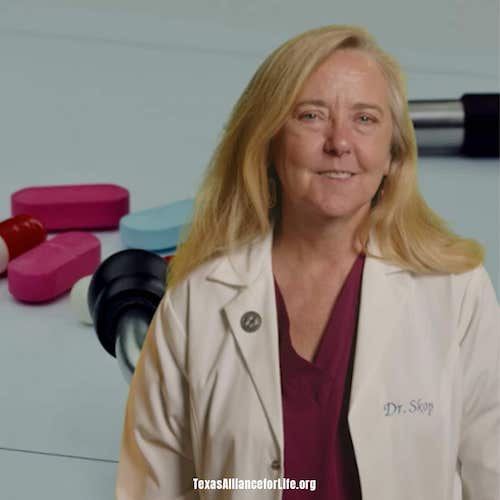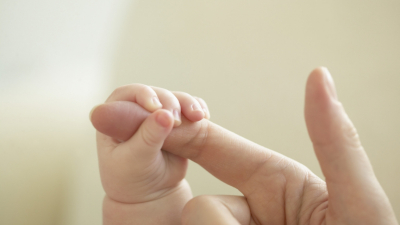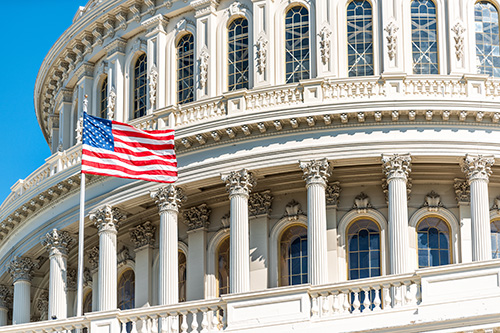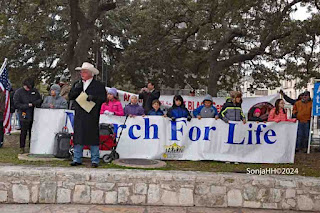Texas “Trigger” Law to Go into Effect in August as Supreme Court Issues Final Judgment in Dobbs
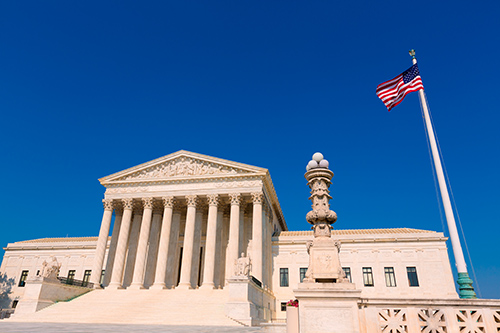 The United States Supreme Court released its judgment in the case Dobbs v. Jackson Women’s Health Organization. The opinion in Dobbs, handed down on June 24, overturned the 1973 Roe v. Wade and 1992 Planned Parenthood v. Casey precedents that have prevented states from protecting unborn babies from abortion before viability. The issuance of the judgment, which is distinct from the opinion, begins a 30-day clock for HB 1280, the Texas Human Life Protection Act (also known as the “trigger” law), to go into effect.
The United States Supreme Court released its judgment in the case Dobbs v. Jackson Women’s Health Organization. The opinion in Dobbs, handed down on June 24, overturned the 1973 Roe v. Wade and 1992 Planned Parenthood v. Casey precedents that have prevented states from protecting unborn babies from abortion before viability. The issuance of the judgment, which is distinct from the opinion, begins a 30-day clock for HB 1280, the Texas Human Life Protection Act (also known as the “trigger” law), to go into effect.
In 2021, the Legislature passed HB 1280, by Rep. Giovanni Capriglione (R-Southlake) and Sen. Angela Paxton (R-McKinney), to completely protect unborn babies from abortion beginning at conception, when the child comes into being. HB 1280 provides that performing an abortion is a first-degree felony punishable by up to 99 years, the attorney general can bring a lawsuit that includes a fine of at least $100,000, and that medical boards must revoke the medical license of an offender. HB 1280 has a medical emergency exception, and the penalties do not apply to treatment for ectopic pregnancy or miscarriage. There is no liability for women.
Now that the Supreme Court has overturned the terrible Roe v. Wade decision, Texas is finally free to protect unborn babies and their mothers from the tragedy of abortion. That is what the Texas Legislature, Governor Abbott, and the pro-life movement is well underway at doing.
We are grateful to Governor Greg Abbott and the legislature for making the Human Life Protection Act a reality that will be fully realized when it goes into effect in August.
All 23 abortion facilities in Texas have already closed indefinitely. Meanwhile Texas has 350 pregnancy centers, maternity homes, and adoption agencies to provide free services to women with unplanned pregnancies.
Also in 2021, the Texas Legislature passed, and Gov. signed into law, several substantial measures to support women with unplanned pregnancies.
- The Legislature appropriated $100 million for the current two-year budget toward the highly successful Alternatives to Abortion program. That program provides services for women facing unplanned pregnancies to assist them in carrying the baby to term, giving birth and keeping or placing the baby for adoption. Support is available for at least three years after birth from nearly 200 pregnancy centers, maternity homes, and adoption agencies across the state serving 150,000 clients each year, far more than the 55,000 abortions in Texas in 2020. Women’s care at these centers includes pregnancy confirmation, counseling, moral support and services to free women from sex trafficking, domestic violence, or substance abuse. The centers also provide maternity and baby clothes and diapers for client’s babies. Budgeting, parenting and pregnancy classes, job skills training, and referrals to other government agencies are also available. Hundreds more privately funded centers and church-based programs offer similar services across Texas.
- For uninsured pregnant women with incomes up to 200 percent of the federal poverty level, the state’s Medicaid program pays prenatal, childbirth and follow-up care for the mothers for six months and babies for 12 months. The Texas Medicaid program pays for more than half of all births in Texas, costing nearly $1.2 billion per year.
- The Legislature continued funding various free services for low-income women, appropriating $352 million over two years toward breast and cervical cancer screening, family planning, pregnancy testing, pelvic exams, sexually transmitted infection services, screening for and treatment of cholesterol, diabetes, and high blood pressure. The HealthyTexasWomen.org website lists thousands of providers.
Also, as a result of the Dobbs opinion, Texas’ pre-Roe abortion ban, first enacted in 1854, has gone back into effect. Roe v. Wade blocked enforcement of that ban, but the laws were never explicitly repealed by the Legislature. The law criminalized abortion with a 2-5 year penalty for anyone performing an abortion. Women seeking abortions were never prosecuted.



